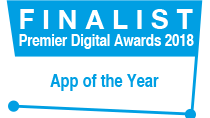
Social Networking & Child Protection
Posted on: May 19, 2011
More and more of us seem to be engaging with and using social networking. Maybe Facebook is your only site or perhaps you’ve got the full set of Facebook, Twitter and maybe even Myspace (still?!) and Formspring.
Either way social networking can be a really powerful tool for connecting with young people, plugging events and engaging them in conversation however it doesn’t come without risks.
To help equip you in your ministry we’ve written a sample section of a child protection policy on social networking plus we’ve got some advice for paid youth workers and volunteers.
Tips for Paid Youth Workers
Our first bit of crucial advice is to have a separate youth worker account on Facebook. This is important on many levels but primarily it means you can separate work and time off but it also means your friends won’t post inappropriate things on your page.
Having a Facebook account solely for youth work purposes also means that you can perhaps have several of your team using it but also (and most importantly) your password and username can be available to your line-manager so that your account can be checked (if required for whatever reason). This adds an extra dimension of accountability without passing details of your personal account n.
Tips for Volunteers
It’s probably not right to suggest that volunteers have a separate youth work account however it’s important to make sure they’re aware of your child protection policy. We give our volunteers a leaflet when they start to help out and the section on ‘using social networking’ reads as follows;
Social networking can be a helpful tool in working with young people. If you choose to use these in your ministry please ensure that the safe behaviour code continues into the virtual world of social networking sites, keeping your profile appropriate for the viewing of young people.
If you’re contacting young people using these sites always do this in a public way. Do not use instant chat or private messages even if a young person sends you messages using these tools. It is also important that you also avoid using abbreviations such as ‘LOL’ as these can be misinterpreted by parents/guardians.
Remember to apply all the other good practice guidelines discussed within this leaflet in any interaction you have with young people online.
Sample Child Protection Policy on Social Networking
Here is a sample child protection policy on using social networking which our founder Mark Tiddy produced. As always feel free to use it and tweak it however it’s always nice to know if our material is useful so do drop us a line and let us know if you like it!
Use of Social Networking for HCYT Purposes
Youth Work Resource recognises the important role that social networking websites play in the ways in which young people communicate and the effectiveness of these groups within youth ministry, however Youth Work Resource also recognises the potential safeguarding issues social networking brings therefore Youth Work Resource recommends that it is good practice for its staff to:
- Use a separate, designated Facebook account for the purposes of the youth trust. This account may be examined by any of the trustees and should be used for YWR purposes only and not as a workers personal account.
- Any communication using this Facebook account should be kept public or kept logged. Messages should be saved and kept (both incoming and outgoing) and instant chat must not be used at any time to communicate with young people.
- All contact with young people using Facebook should be kept appropriate and not use abbreviations/language that could be misunderstood by a parent or guardian (e.g. LOL and smilies).
- It is recommended that staff do not use this account after 10pm in order to maintain a safe boundary between work and personal life.
You can download an extended version of the above in our useful forms/documents section
